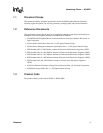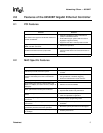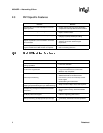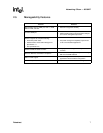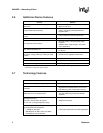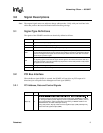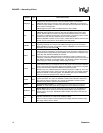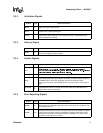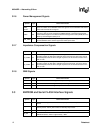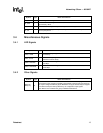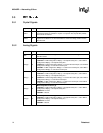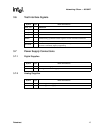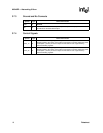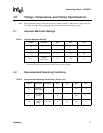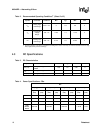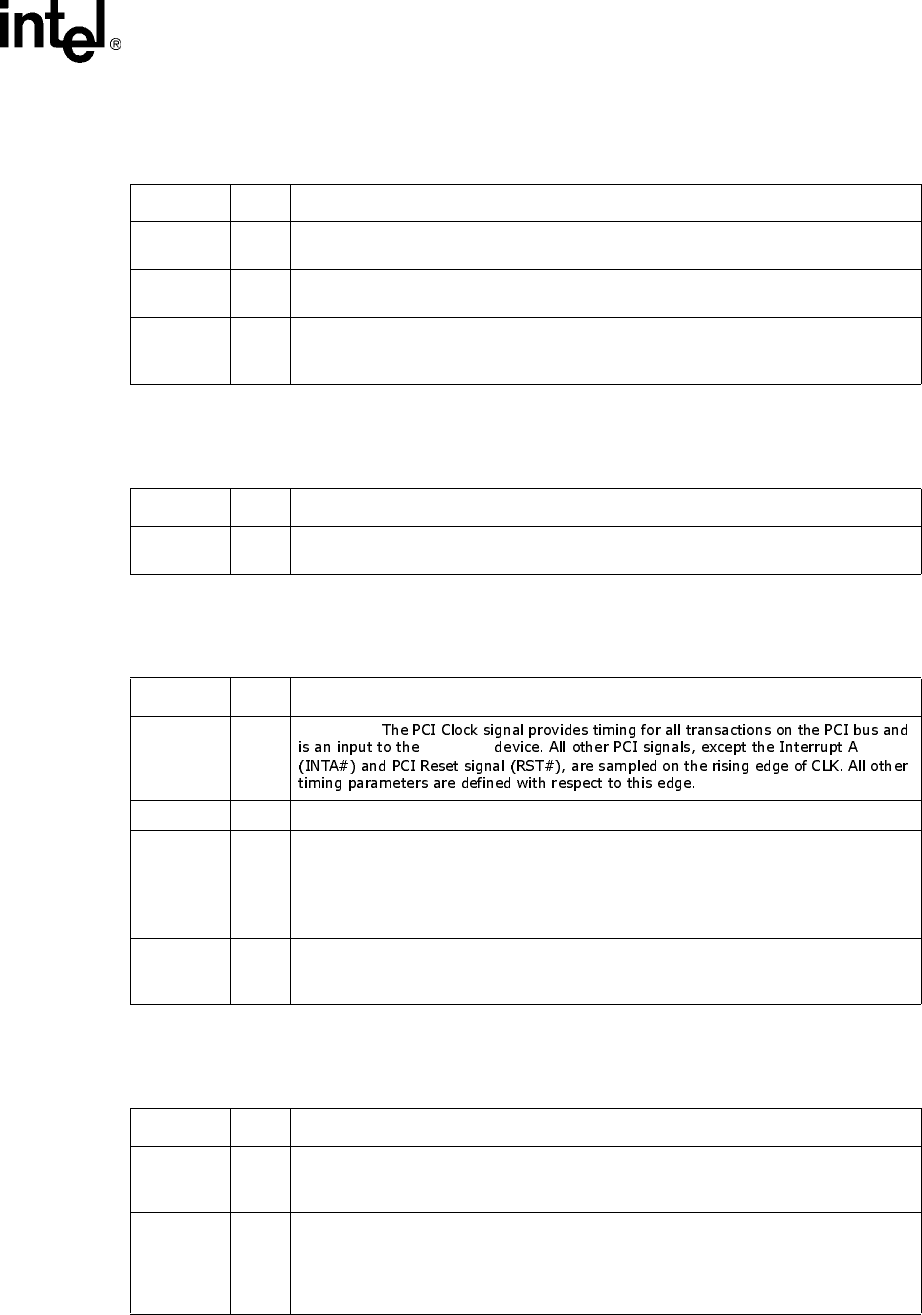
Networking Silicon — 82540EP
Datasheet 11
3.2.2 Arbitration Signals
3.2.3 Interrupt Signal
3.2.4 System Signals
3.2.5 Error Reporting Signals
Symbol Type Name and Function
REQ# TS
Request Bus. The Request Bus signal is used to request control of the bus from the
arbiter. This signal is point-to-point.
GNT# I
Grant Bus. The Grant Bus signal notifies the 82540EP that bus access has been
granted. This is a point-to-point signal.
LOCK# I
Lock Bus. The Lock Bus signal is asserted by an initiator to require sole access to a
target memory device during two or more separate transfers. The 82540EP device
does not implement bus locking.
Symbol Type Name and Function
INTA# TS
Interrupt A. Interrupt A is used to request an interrupt by port 1 of the 82540EP. It is an
active low, level-triggered interrupt signal.
Symbol Type Name and Function
CLK I
PCI Clock.
82540EP
M66EN I 66 MHz Enable. M66EN indicates whether the system bus is enabled for 66MHz.
RST# I
PCI Reset. When the PCI Reset signal is asserted, all PCI output signals, except the
Power Management Event signal (PME#), are floated and all input signals are ignored.
The PME# context is preserved, depending on power management settings.
Most of the internal state of the 82540EP is reset on the de-assertion (rising edge) of
RST#.
CLKRUN#
I/O
OD
Clock Run. This signal is used by the system to pause the PCI clock signal. It is used
by the 82540EP controller to request the PCI clock. When the CLKRUN# feature is
disabled, leave this pin unconnected.
Symbol Type Name and Function
SERR# OD
System Error. The System Error signal is used by the 82540EP controller to report
address parity errors. SERR# is open drain and is actively driven for a single PCI clock
when reporting the error.
PERR# STS
Parity Error. The Parity Error signal is used by the 82540EP controller to report data
parity errors during all PCI transactions except by a Special Cycle. PERR# is sustained
tri-state and must be driven active by the 82540EP controller two data clocks after a
data parity error is detected. The minimum duration of PERR# is one clock for each
data phase a data parity error is present.



